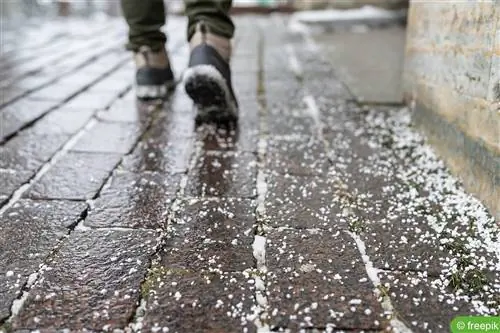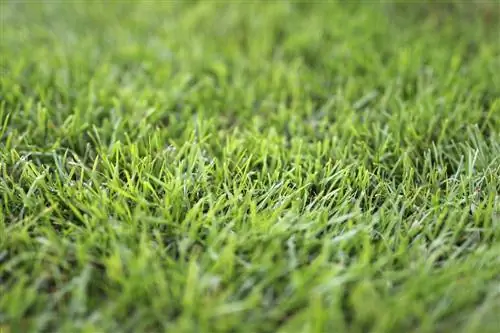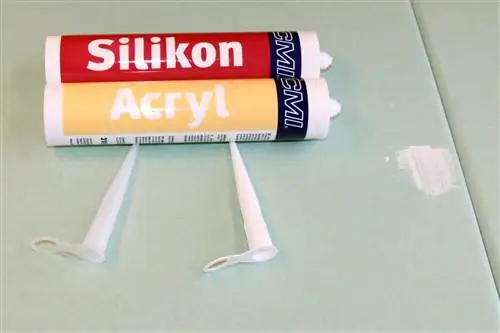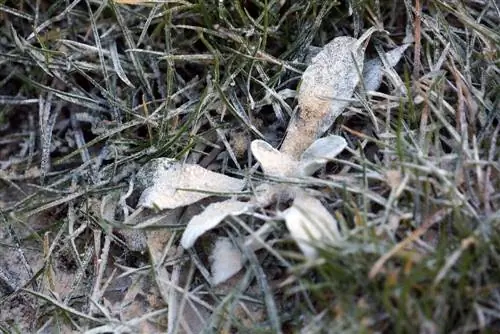- Author admin caroline@plants-knowledge.com.
- Public 2023-12-17 03:39.
- Last modified 2025-01-24 12:45.
With winter comes the cold - and with it snow and ice, which owners and tenants have to clear from sidewalks. The use of road s alt is prohibited in most municipalities and cities.
Road s alt is forbidden here
In Germany there is no uniform regulation at federal or state level regarding the use of road s alt by private individuals. Instead, each city, municipality or municipality decides for itself whether it allows the use of the product or not. However, a ban on the use of road s alt has now been issued in almost all places. You can find out whether your place of residence also prohibits the use of grit by asking the office responsible for winter service in the town hall of your home town. Larger cities and municipalities have also published corresponding regulations on the Internet, where they can be quickly found by entering “road s alt place name” in the well-known search engines.
Tip:
Information and tips about gritting agents and road s alt can also be found on the website of the Federal Environment Agency.
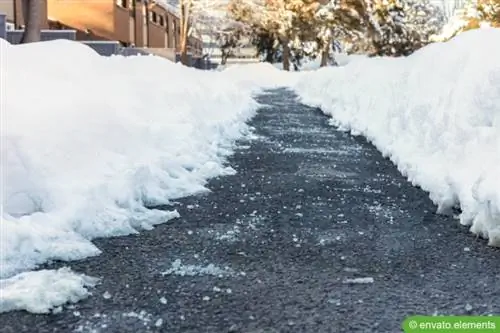
Exceptions
However, there are exceptions to the ban on the use of road s alt in some municipalities or municipalities: the product may be used by private individuals in extreme weather conditions, which includes lightning ice, for example. However, such events only occur rarely; normal nighttime snowfall is not one of them - even if it involves very large amounts of snow. To be on the safe side, ask the authorities before using road s alt and ask to see any exceptions in the statutes.give in writing. In case of doubt, you are protected from legal consequences.
Note:
Despite the almost nationwide ban on its use on public roads, road s alt can still be purchased in Germany. You may buy the product, but you may only use it on your private property, depending on the relevant statutes. However, spreading on private property is often prohibited by the authorities.
Reasons
You may be wondering why road s alt is actually banned. After all, it's basically completely non-toxic table s alt - right? In fact, road s alt is the same sodium chloride that we use for cooking. However, the product is mixed with some additives, such as free-flowing aids for easier distribution. However, these do not explain the danger of the substance, because road s alt in large quantities has extremely unfavorable effects on the environment:
- seeps into the ground with condensation and rain
- contaminates groundwater
- s alted soils
- Trees, bushes and other plants absorb s alt through roots
- as a result, water absorption is disturbed
- Drought damage, disease and death threaten
- corrosive effect on structures and vehicles (e.g. car tires)
- causes burns and contact damage to the skin of people and animals (e.g. the paws of dogs and cats)

Tip:
If you don't want to miss the benefits of road s alt, you can use so-called wet s alt. Although this is more expensive than conventional road s alt, it is not prohibited and you need significantly less for an effective effect.
Alternatives and their use
Instead of the banned road s alt, there are also some effective alternatives that are also ecologically harmless. These include, for example,
- Sand
- gravel
- Split
- Clay or lava granules
- Gritting material with the “Blue Angel”
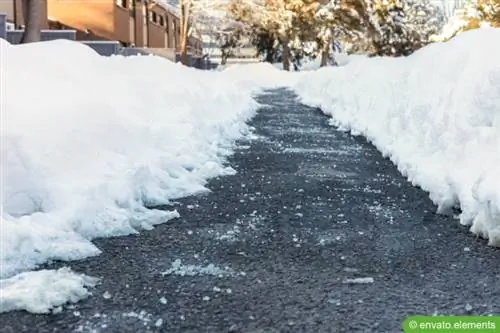
In contrast to road s alt, these grits do not thaw the ice, but rather settle into the surface and therefore make it easy to walk on. However, the effect diminishes with every snowfall; after all, the new snow covers sand etc., which is why the funds have to be applied again and again. The application is very uncomplicated:
- Clear the area as much as possible with a snow shovel and broom
- Apply grit evenly
- thin layer is enough
- Repeat process if necessary
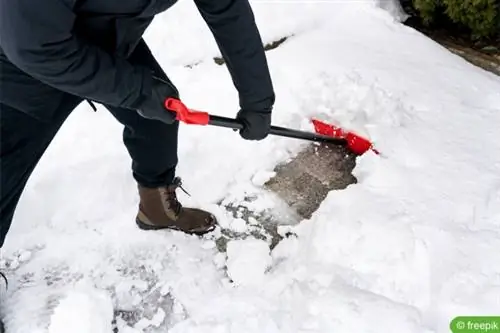
Incidentally, some municipalities not only prohibit the use of road s alt, but also prescribe certain gritting materials for private individuals. Find out in advance whether such a regulation also applies to you - otherwise you could face severe fines if you violate it.
Note:
You can also be fined heavily if you use road s alt despite a ban - in Berlin you can pay a fine of up to EUR 10,000 for this. It also becomes problematic when using unsuitable grit: wood or wood shavings, for example, should not be used for this purpose either!
Frequently asked questions
What is the “duty to spread” in winter?
Section 823 of the German Civil Code (BGB) stipulates an obligation for private individuals to pay compensation if others are harmed by their actions (which they did not take). This also has an impact in winter, as homeowners are subject to clearing and gritting obligations. This means that you have to clear private and public paths in front of and around your house from snow and ice and make them safe to walk on. This should be done regularly between 7 a.m. and 9 p.m. - including on Sundays and public holidays.
Is the landlord obliged to spread?
In apartment buildings, the house owner, i.e. landlord, is generally responsible for compliance with the clearing and gritting obligations. To do this, he can either carry out the necessary work himself, commission a specialist company to do it, or delegate these tasks to the tenant(s) as specified in the rental agreement. But be careful: Even if the tenants have been contractually obliged to vacate and disperse, the duty of inspection always remains with the landlord! This can ultimately also be held liable in the event of claims for damages.

